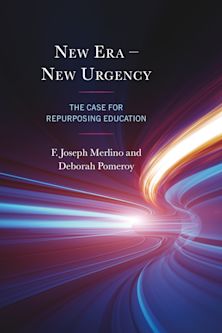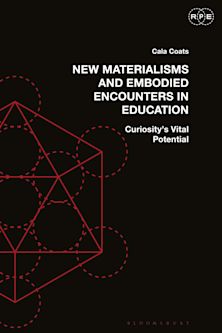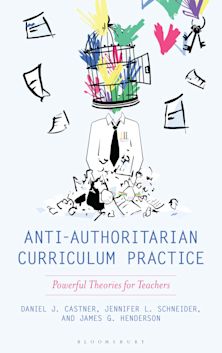- Home
- ACADEMIC
- Education
- Curriculum Studies
- Reassessing the Social Studies Curriculum
Reassessing the Social Studies Curriculum
Promoting Critical Civic Engagement in a Politically Polarized, Post-9/11 World
Reassessing the Social Studies Curriculum
Promoting Critical Civic Engagement in a Politically Polarized, Post-9/11 World
You must sign in to add this item to your wishlist. Please sign in or create an account
Description
The terrorist attacks of September 11, 2001 dramatically changed many aspects of American society, and the ramifications of that horrific event are still impacting the domestic and foreign policies of the United States. Yet, fifteen years after 9/11—an event that was predicted to change the scope of public education in the United States—we find that the social studies curriculum remains virtually the same as before the attacks. For a discipline charged with developing informed citizens prepared to enter a global economy, such curricular stagnation makes little sense. This book, which contains chapters from many leading scholars within the field of social studies education, both assesses the ways in which the social studies curriculum has failed to live up to the promises of progressive citizenship education made in the wake of the attacks and offers practical advice for teachers who wish to encourage a critical understanding of the post-9/11 global society in which their students live.
Table of Contents
Foreword
Margaret Smith Crocco
Preface
Michael J. Berson and Ilene R. Berson
Acknowledgments
Introduction: September 11, 2001: The Day that Changed the World . . . But Not the Curriculum
Wayne Journell
Chapter 1: International Conflict and National Destiny: World War I and History Teaching
Keith C. Barton
Chapter 2: 9/11 and the War on Terror in American Secondary Curriculum Fifteen Years Later
Jeremy Stoddard and Diana Hess
Chapter 3: Including 9/11 in the Elementary Grades: State Standards, Digital Resources, and Children’s Books
Elizabeth Bellows
Chapter 4: How Patriotism Matters in U.S. Social Studies Classrooms Fifteen Years After 9/11
Mark T. Kissling
Chapter 5: National Identity and Citizenship in a Pluralistic Society: Educators’ Messages Following 9/11 and Charlie Hebdo
Lisa Gilbert
Chapter 6: The Courage of Hopelessness: Creative Disruption of Everyday Life in the Classroom
E. Wayne Ross
Chapter 7: Civil Liberties, Media Literacy, and Civic Education in the Post-9/11 Era: Helping Students Think Conceptually in Order to Act Civically
Stephen S. Masyada and Elizabeth Yeager Washington
Chapter 8: Role-Playing and Role-Dropping: Political Simulations as Portals to Pluralism in a Contentious Era
Jane C. Lo and Walter C. Parker
Chapter 9: The Psychology of Controversial Issues Discussions: Challenges and Opportunities in a Polarized, Post-9/11 Society
Christopher H. Clark and Patricia G. Avery
Afterword
Ron Evans
About the Contributors
Product details
| Published | May 03 2016 |
|---|---|
| Format | Ebook (PDF) |
| Edition | 1st |
| Extent | 152 |
| ISBN | 9798216287858 |
| Imprint | Rowman & Littlefield Publishers |
| Illustrations | 1 BW Photo, 6 Tables |
| Publisher | Bloomsbury Publishing |
About the contributors
Reviews
-
Featuring some of the most important leaders in social studies education, Reassessing the Social Studies Curriculum brings into focus the state of civic education and the construction of citizenship and national identity in post-9/11 United States. At different points historical, empirical, and critical, this book is an important and poignant read for anyone teaching social studies amidst the seemingly endless U.S. War in the Middle East.
Wayne Au, University of Washington Bothell
-
Why hasn’t social studies education evolved since the events of September 11, 2011? What principles, philosophies, and instructional approaches could guide educators grappling with teaching about 9/11 in critical, culturally responsive, and daring ways? This remarkable book, with contributions with a range of outstanding social studies scholars, answers these questions and more, providing a much needed resource to those who are hopeful about the possibilities for social studies education in a post 9/11 world.
Anne-Lise Halvorsen, Michigan State University
-
The diverse chapters in Reassessing the Social Studies Curriculum: Preparing Students for a Post-9/11 World explore compelling and important topics that generate necessary—and fascinating—conversations, considerations and questions about the status, place, and potential of social studies in the post-9/11 world. Borrowing a quote from Keith Barton’s chapter, the work in this book moves “beyond discrete and obvious reactions to a critical event and examine[s] its deeper, more gradual, and ultimately more profound effects.” The authors offer theoretical as well as practical considerations for those interested in social studies education and thoughtfully analyze the curricular implications of such a significant and tragic event in history. Journell’s book is an important contribution to the field.
Stephanie van Hover, Associate Professor and Chair of the Department of Curriculum, Instruction, and Special Education, University of Virginia
-
Teaching basic historical events is now much more complicated than it was in the past; there is a sense of constant change both at home and abroad. Reassessing the Social Studies Curriculum helps teachers understand the need to illuminate the gray realities of our previously black and white view of history. It offers teachers strategies to help post-9/11 students have deeper understandings so that they can make conceptual connections.
Kim O'Neil, President of the National Council for the Social Studies


































